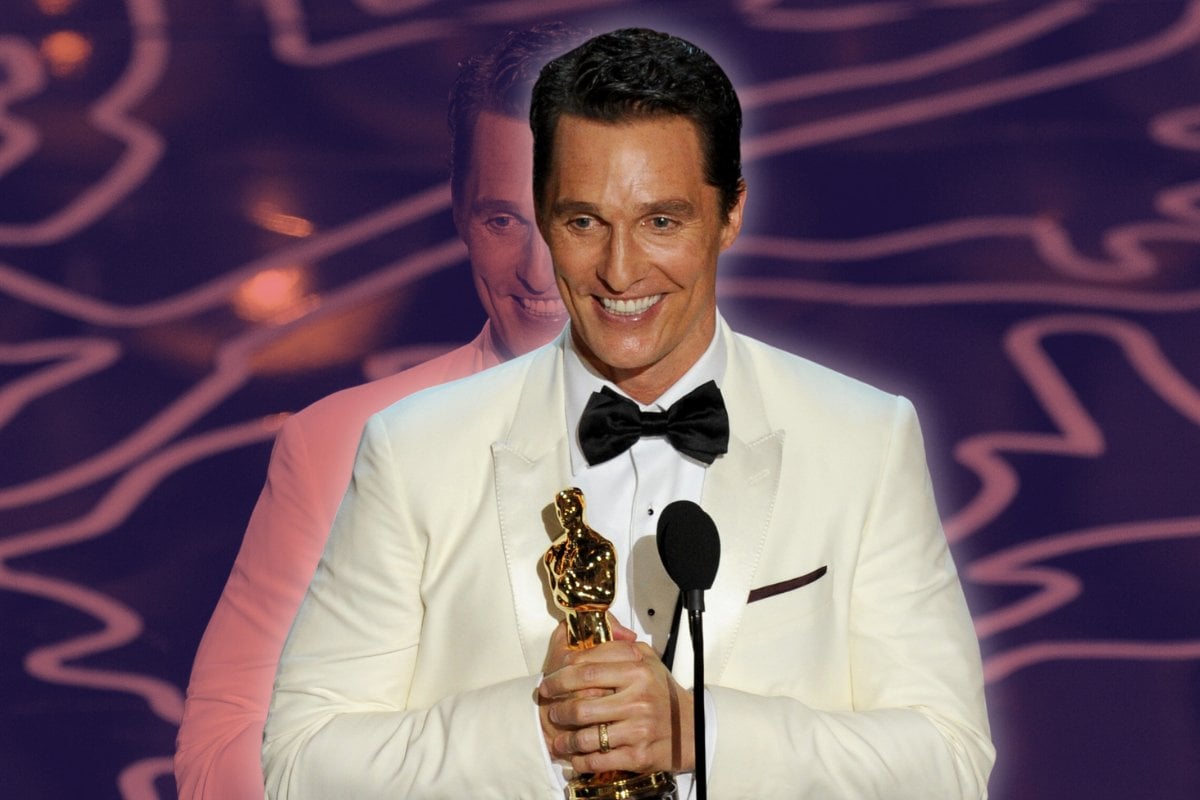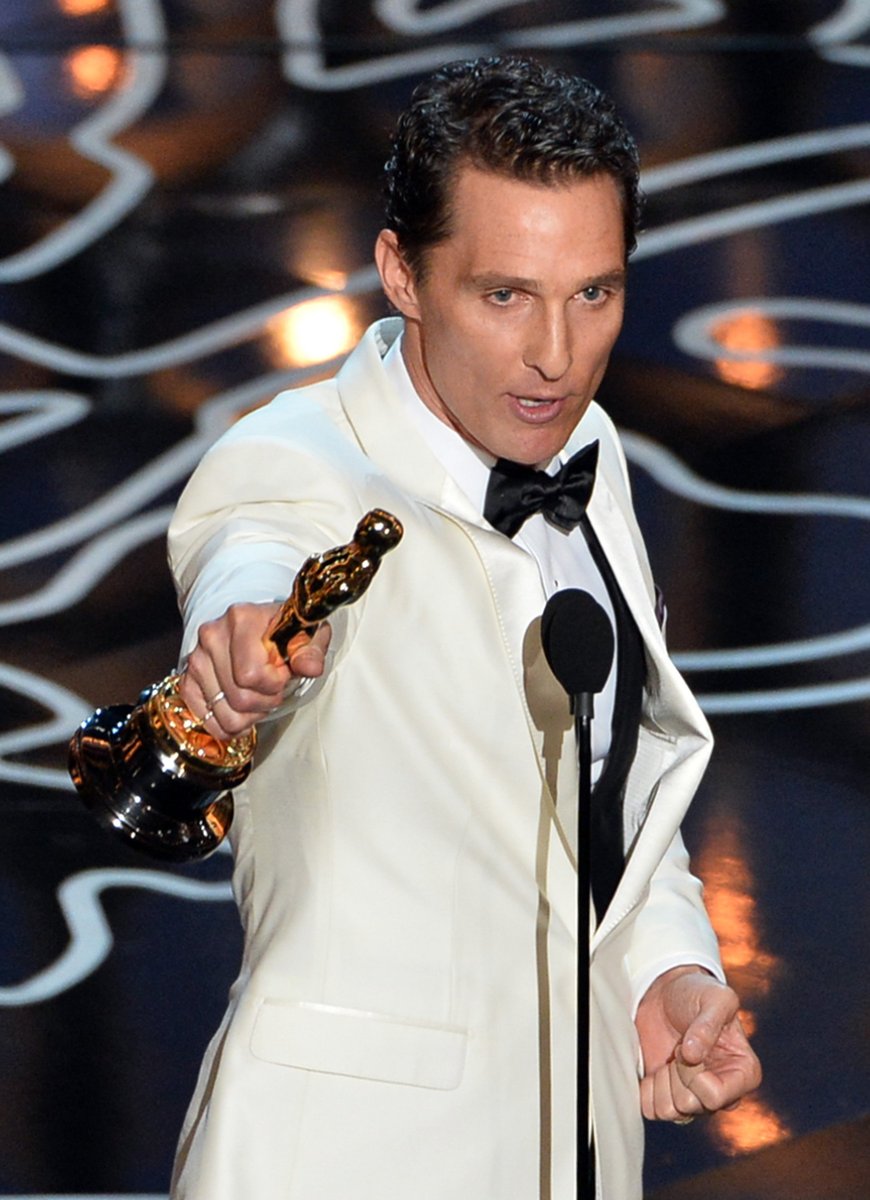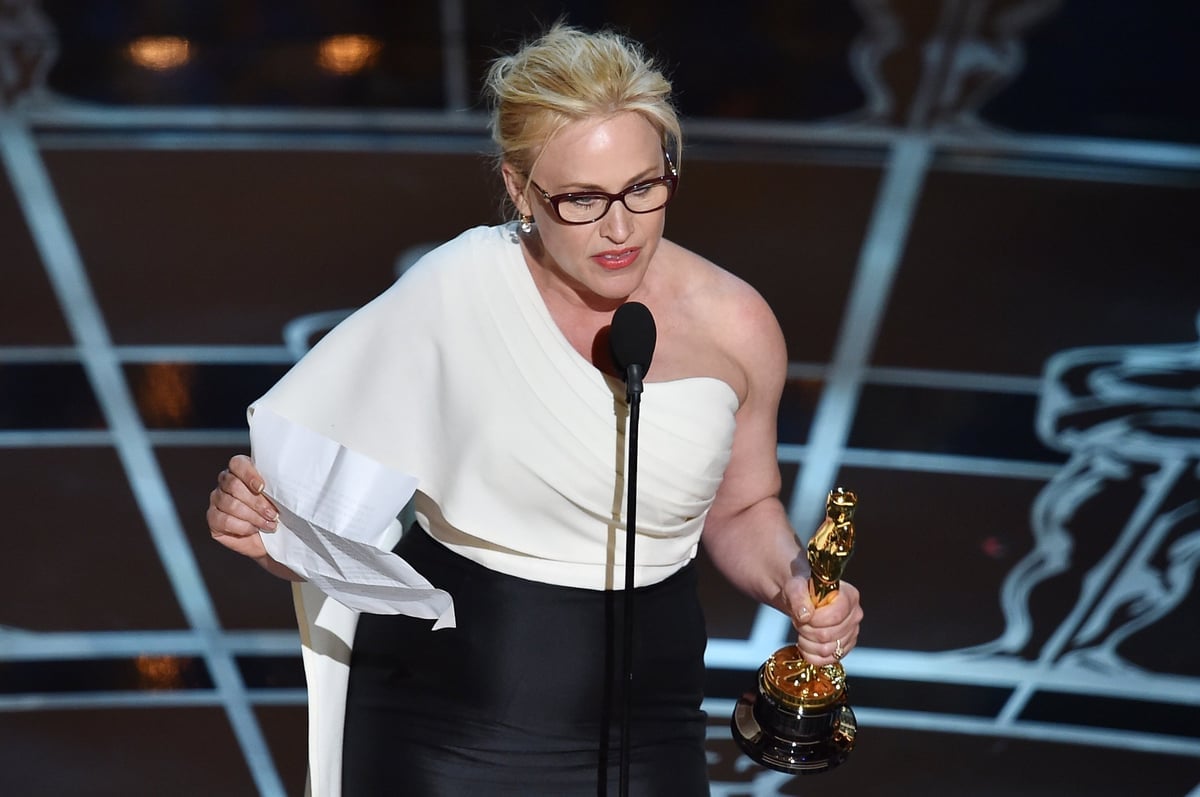
Back in 2014, it was Matthew McConaughey's world and we were just livin' in it.
This was a huge time for the actor who had an impeccable run of films, including The Wolf of Wall Street, Chris Nolan’s Interstellar on the way, and a critically acclaimed performance for Dallas Buyers Club, the latter earning him his first Oscar.
This era became affectionately known as the McConaissance, a term the actor later revealed in his memoir that he coined himself.
Because of course, he did.
But back to the actor's first Oscar, an award won for playing real-life person Ron Woodroof, a man diagnosed with AIDS in a movie about how the US's healthcare system failed gay men and transgender people diagnosed with AIDS.
So who did he dedicate his win to when accepting his Oscar?
Well, himself.
In a speech for the history books, after thanking his family and God, McConaughey turned his attention back to himself.
"To my hero... when I was 15 years old, I had a very important person in my life come to me and say 'who's your hero?' And I said, 'I don't know, I gotta think about that. Give me a couple of weeks.' I come back two weeks later, this person comes up and says 'who's your hero?' I said, 'I thought about it. You know who it is? It's me in 10 years'," McConaughey said.
Watch the bizarre moment below. Post continues after video.


Top Comments